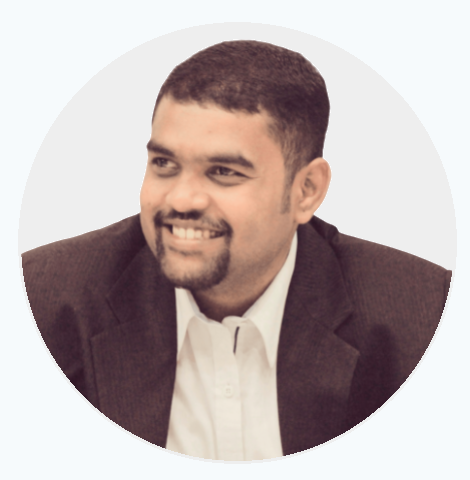What would you order when you finally get a chance to visit this renowned luxury restaurant that you have heard so much about?
Would you spend your time flipping through the pages of their menu card to find what suits you best? Of course not! You order what the place is best known for, and trust me, most probably you won’t even need a menu card. This dish you have ordered here is the signature product of this particular restaurant. This is the one thing that comes to your mind when you think about this restaurant.
Do you have a product like this that flashes across people’s minds as soon as they think of your company? No? Well, it’s time to get one.
We have with us the right person to answer any kind of question that you might have on the topic: Doc Williams, founder of Brand Factory, and solution architect. Let’s begin.
Podcast Highlights:
00:10 – Introduction.
03:30 – How Doc started his own productized services.
08:00 – Elements of a signature product.
12:02 – How to price your signature product? Value-based vs. Productized?
16:02 – When should someone stop researching and start producing?
17:37 – How many people you should have on your customer research?
19:21 – Some great examples of signature products in different verticals.
22:55 – Recommended books
Guest
Special thanks to Doc Williams for joining this amazing episode. This is incredibly advantageous if you have your own podcast to promote, since the audience is already listening to podcasts, meaning they’re much more likely to subscribe to your own podcast.

Doc Williams
FOUDER, BRAND FACTORYSolution Architect, Helping entrepreneurs develop their goals and technologies
Transcript:
RK: Thank you so much, everyone, for tuning into this week’s special podcast. In this very special episode, we have a solution architect, helping entrepreneurs develop their goals and technology they need to level up.
We are going to cover an extremely crucial pillar of growing your business, creating your signature product. We have here the founder of Brand factory, Doc Williams.
Doc: Hey, thank you so much for having me. I’m so happy to be here.
RK: Thank you so much, Doc. And we had a lovely chat right before we started recording the podcast and we covered a lot of things about the challenges that the entrepreneurs are facing, especially when it comes to differentiating their product in the marketplace.
So I would like to understand from doc Williams, how he got started with the signature product solution and you know, how he started implementing it and what results he has started seeing him when he started doing it, all yours.
Doc: Oh, wow. Okay, so this is gonna be a little bit extensive.
But, basically, over time, I have tried so many things in digital marketing, and I thought it was going to be the solution and I found out they just weren’t the right fit for me from doing ad campaigns, funnel marketing, all of these things.
I came away with, I just wish I didn’t do 85% of the things that I did at digital marketing because it didn’t fit me.
And I wish there was a tool that just told me what type of product or signature product I should be good at and so after all these years of doing this with clients.
We developed a system starting with an assessment to building content that fits people’s personalities and then from there, we discovered, okay, people are in different buckets.
They should create different products that relate to their personal brand or that brand and then that’s Have we created that program.
RK: Okay, so you would recommend someone to differentiate their brand completely separate for every audience that they target, isn’t it?
Doc: Pretty much.
RK: Okay.
Doc: Now, It really depends. If they’re very different, you want to have a product suite. And you want to have your signature product to the your biggest or your best clients that you can help, right?
So you might be working with tonnes of people at different levels of their business or whatever they’re trying to do.
The signature product, we go into the sweet spot of that portion of your target demographic that benefits the most from that product and that’s what you want to be known for in your space. So that’s what our signature product that we build for people.
RK: Okay. Excellent. Doc Williams, we have, you know, the audience’s writing to us or, you know, telling me that you know how much they enjoyed the shows because the entrepreneur shared heart to heart, from their experience and how they have to conquer their inner demons while building their product and services.
So if I may ask you to share your experiences of how you actually started creating your own product I services and the impact it had on people’s lives and your life as well.
Doc: That’s good. So we’ll start with creating a product and service to help people. I tried to do in a couple different ways. I started as a brick and mortar business, because I opened a gym when I was 23.
So I thought that’s how I was going to help people the most, but I realised I was a horrible manager of people for brick and mortar businesses. I am not meant to be running a live store.
So I wanted to still impact people and see how we could do this. And what I found was creating content or teaching people how to create content that allows them to help others was really impactful.
So I before doing a signature product, I started copywriting and helping people create a persona or voice for themselves. So I would ghostwrite, I would build out their content, build out funnels, and I saw a lot of people connected with them because we could reflect the content on the page or their, you know, their funnel, people felt like they, they really knew that person.
So that’s where I started and then from there, it’s helped to impact other people’s businesses. We’ve got to work with a lot of different companies. Including VaynerMedia and app Sumo, and others, and then personally how it’s helped me.
I just love. I love teaching, I love having people reach their goals. So it’s been very, and I used to be a teacher years ago too. So it’s just been very fulfilling, seeing people get the brands that they want to create or start, start making the money that they deserve with their brand because they’re positioning themselves in a certain way, by having a signature product. So it’s been fulfilling that way.
RK: Excellent and what did it do to your profit and your revenue?
Doc: Yeah, it totally changed, right? So I was always, so first I went into. So after I was copywriting, and doing a social media manager, I was like, I’m just going to consult and I saw these people go into consulting and I thought, hey, I’ve got a charge a certain amount per month.
I’m going to do it. Just like everyone else, well, you know what, it didn’t help me differentiate myself in the market and people stopped signing up for my consulting because I was trying to be like everyone else.
And I think we talked about this or you commented, you went into one of my website creation like courses? How we consult with people, we do Hybrid’s right.
So we don’t do just one on ones, I make them on board through courses. And when they’re completing tasks, then they get access to the team and myself. So that helped us maximise profit, streamline our business and work smarter and not harder in our business so that’s really been the gap, the huge change.
And before I remember, I’ll never forget when I first started consulting, I used to charge only $107 per month and I had a client that cancelled and she’s like, I was in the fitness space. She’s like, I had to choose you over my nutrition coaching. She’s like, it feels like I had a breakup and I was like, she cut me off at $107.
I was like, I know, I’m worth more than that. But I didn’t position myself in the right way. And from there, I was, like, I need to change this whole thing. Because if she’s choosing this other thing over my services, where I could be making her 10 X that per month, I need to do something different. And that’s how we change the business.
RK: That is great. So I think our listeners and viewers are very lucky that they don’t have to go through such an incident before they start, you know, putting some serious thought into creating their own signature product.
You know, so can you talk about what elements goes into making this a signature product?
Doc: Yeah, so it really has to do with actively listening and what is your, what do people want from you?
Like, I think the problem is, so many people and myself included at first, I always thought that people wanted a certain product or I wanted to show up in the industry.
If people don’t like the medium or the format, it might not resonate with you, or them more importantly, so it really goes into taking stock and what people are asking for, and what platform or what format do people really enjoy?
And so like, for example, you know, for us, we stream and we’re on a lot of things like YouTube and all those things. Well, we get a lot of traction and we’re on Twitch, and a lot of businesses are like, what were you doing on twitch?
You know, we went where an audience where a lot of people weren’t focused on and that’s where we converted. So I think a lot of people are stuck. I have to do courses. I have to do podcasts. I have to do this. Like, stop it.
Just think about what people are asking and then build it the way that people consume that content.
RK: Perfect. So audience research is the number one step, isn’t it?
And once you listen, once you understand what their pain points are and what kind of goals that they have, and then what medium they want to listen or watch or consume content, then how do you create a signature solution, a signature product that would solve their needs.
Doc: I love this. So in between those steps after you hear what they’re saying, write it down, so you can review it. So many times, we work with brands, they kind of anecdotally they’re like, Hey, I heard someone liked it this way. I want to see the numbers on this Google spreadsheet. What are they saying? How many people said it x, y, and z?
The next thing is those people that have raised their hands to say, “Hey, I like that idea.” Instantly ask them “if I had this next Week, it’s X-amount, do you want to preorder it?” And you ask them right there. Like before I do anything. I’m saying, hey, you love that idea. Um, it’s gonna start at $129 but if you preorder by tomorrow, it’s going to be $97. For you, yes or no?
RK: That is great. So that way you can validate. Yeah and let me. let money tell you,
Doc: Yeah, right away, because I don’t want to even build an MVP. I don’t even build an MVP until I get a pre-order. until they’re. I’m not going to do anything. I might do a mock-up of a picture or something. I won’t build it in a, you know, a Course Builder.
I won’t restart. Because so many people will tell you, you know? for example, there there was someone asked me when I was online the other night. Excuse me, when someone was asking me like, “do you have a paid course?” I was like, “Yes, it’s x amount.” They’re like, well, I’m broke. I can’t afford it?
So if I didn’t ask that extra step, or “Yes, it’s this amount” I told them, I was like, it’s gonna start at 127. You can get it for 99 tonight. I can’t afford anything right now. So, although I knew I wanted to build it later on, I was like, “Hey, I’m gonna make you a custom four-minute video about answering your question.” To get the answer, I need you to record a two-minute testimonial of what I just did for your business.
I need you to have that. So that’s an even exchange, it’s still on the right topic for what I’m going to release later on If I have traction, it’s not costing me more than four minutes and I have a great testimonial that when I build out that sales page, I can still drop all those testimonials that I’m gathering as I’m getting through right then.
RK: Right? That is great. That’s awesome.
So which brings me to the next question, a very crucial question which is how to price your signature product?
Should we go for a value-based pricing? Like a lot of traditional marketing agencies and coaches do? Or should we go in for productized service where there is a definitive result a definitive amount of money?
No, like everything is defined. Value-based change according to the amount of value that you bring into the table.
Product-based is all about, you know, selling in mass, right? So the same price, even if you are a rich person or a poor person, it costs the same.
Doc: You know, that’s an interesting way that you posed it, I almost do a hybrid style, because in my beta launch, I do value to see what I’m going to go the market. And then from there, I look at how much money did I just make them, how much time I just saved them.
Because if I save them a certain amount, I’m actually saving them an “X” amount of money, so they should be willing to pay me “X”. If I made them a certain amount, they should be willing to pay me “X”.
So After I do my MVP in its value base, and I’m just throwing out numbers to see what I’m doing, then from there when I productize it, I want it to be a stupid easy price for them to be like, it’s no brainer, it makes no sense, not to pay him for that. And then and then that’s what I go with.
So the first pricing, I might throw out if I’m working with them one on one or something, I might charge more, but I’m really like, how much pain did I solve in your life?, if I saved a lot of time and energy, or I made them a lot of money, I’m gonna charge them accordingly. Personally, I don’t, I was gonna go the route of I would take a percentage if I’m making a certain amount of money.
I just don’t like having that conversation. I don’t like following up and trying to find out how much money they made. It’s just like, this is the price yes or no?. And productizing. I’m really a fan because then you can scale. So you saw one of our processes when we do website design, we productize the mess out of that. Right?
So you saw it by accident. But, you know, we charge a certain amount we onboard them. It’s productize, and we don’t have to worry about it. So that for me, for my sanity, I do productize. So I don’t want to write lengthy. I hate proposals. I hate line items. I hate it. Let’s just, here’s the price yes or no, that’s just me.
RK: Right? So that’s an example, right? Like, how much do you charge for that web design service.
Doc: So web design, so we have two different versions we have either if we’re just doing a landing page, or we’re doing a full revamp, and so we charge $1500. So we do $750 upfront. And then after the revisions, we go through it, we do $750 you pay us the invoice at the end that’s it.
So but we kind of do it in you saw it in the course but to explain like after that The person says yes, we use podio as our course creator, we onboard them. So it’s actually a video of me saying, Hey, welcome so much. Here’s the form to fill out and this is based off the principles. I forgot the man that wrote the book, but it’s like, never lose a customer again, like how to create lifelong fans.
So every milestone we have, so when they fill out the branding kit, when they’re meeting with our team, we celebrate each win and then by the end of it, we do the wrap up call and we’re like, Okay, great. Here’s the invoice. Do you want us to work with you on another project, or you got from here in the chorus already shows them how to edit the site, so they don’t have to do other calls with us. They just have access to that course and they can go on from there. If They don’t want to pay maintenance afterwards.
RK: The next question, very crucial one. When should someone stop researching and start producing?
Doc: Almost immediately, I mean, this kind of goes back from like, if you have traction, if you’re ready to ask them for pricing, like stop researching, you just gotta you got to test what people are saying. And when people reject you, that’s the best research you can ever have.
Because when people say no to your product, you ask them why that’s all the research you need to know. They’re gonna tell you if they’re like, well it I don’t understand it. That’s great. Now you know the FAQs that you need to have on your landing page. If they say that doesn’t really solve my problem. Okay, so what’s your problem?
It brings all the layers right there but the sooner you ask them for money, the more they’re gonna tell you their opinion because they’re not going to pity buy something if you’re charging them several hundred dollars. And if they do pity buy you need to find out who these people are because you need to start keep asking them more and more for money.
But for the most part, it’s not going to happen. People are going to tell you no, it’s really not happening. And especially in a time like now, people are very selective about what they’re paying for and what they’re not. So if it’s not something that really solves their problem, you know, you need to go back to the drawing board.
RK: Excellent. So, when it comes to customer research, the same question right? How many people do you should you have in your research group? Obviously, you know, like talking to just three or four people may not be sufficient to give you the valid data points that you need to make a decision on it.
How to select this resource group and how many people do you recommend to talk to and get the idea validated before you even price it?
Doc: I go with 5 to 15 and I want to with them that when I’m looking for I want them to be ecstatic. I want them to be loving the idea so much that they want to tell other people, if I can get that energy level. Now I know something’s good, right?
For validating the format. I’m going to ask them like, so if I did it this way, would that be good for you? And I’m just, I’m just having conversations, but I’m recording like, you know, do you need to see this? Would you rather just hear like audio to know what’s going on? Do you need worksheets? What do you need?
And they’re going to tell you and that’s, that’s how I know what to add-in. Like, do you need it? Like, would it help if you had a checklist? like of things? “Yeah, I would love a checklist.”
Okay, well, that’s gonna have a checklist, you know, and then I connected the checklist for this reason if they’re excited, but I want to see 5 to 15 people that are raving about it, then I know I have something. And then if they’re raving about it, then I’m gonna start testing prices on them immediately.
RK: Perfect. Love it. Can you tell us some great examples of signature products in different verticals, something that you really love? For people who are getting started
Doc: I’m going to tell you some that. Yeah, I’m gonna tell you a couple that I like in industry. If you want, I can tell you about a couple of clients that we’ve had too. So just ones that I’ve admired over the years that I really like, teachable doing the teachable summit per year.
I think that’s one of the best signature products out there for a sass platform. The reason I like that is they’re bundling courses, and they’re getting so many people that are new into the space to get all of this content and then they’re onboarding them into getting the basic or pro plan because they’re educating first.
If you look at Thinkifinc and Kajabi, all these other ones, I think I cannot find a better learning platform like a course platform that’s doing it better than teachable for content at that level. They do it a couple times a year, they’ve changed the format a couple of times.
I mean, I’ve had a teachable account since like 2014, when they were like Fedora before they switched over to teachable, I’ve been with them that long, I think is just spot on how they scale, bring in leads, and they self segment themselves out based on all of the content they’re creating. So that’s an example for a SaaS company creating something of value.
For consultants, there are a couple different ways either creating an event or some kind of methodology that goes along so I now am thinking about them because I love their methodology so much. So a signature product for a consultant, if you’re doing something or you have a very specific target demographic you’re working with, that’s going to be your calling card.
So one of our clients, they’re a pretty high-level trainer in the NFL and NBA like major league for football, American football and basketball. their signature was a very specific workshop that they taught live.
And they worked at such a high level that other professionals followed suit. And now they’re being mentored by this person. And they built out their consulting business.
For a local business, if I was thinking about a signature product, I mean, let’s just talk about restaurants, right? If you had a signature dish, that’s your signature product, like if you if everyone’s selling the same exact burger or whatever. If you’re Making that signature where you’re having a certain kind of sauce, you’re bringing in the freshest kind of vegetables with that the lettuce, whatever that’s telling the storyline, that’s differentiating you from all the other restaurants on the same street.
So the signature product, it can exist in many different forms, but you want it to be a calling card that only you could produce that product or service and no one even if they imitate it, they can’t be on the level of you.
RK: Great, awesome. So we really discussed a lot of points about creating your own blue ocean in an amid the, such a competitive environment that we have today.
What are some of the books that you really recommend entrepreneurs to read and get started especially you mentioned about copywriting and how much value to add in your in when you started up? So what are some of the best books probably taught three books that you would recommend the entrepreneurs three.
Doc: Top three? Okay, this is gonna be tough. So there’s a book that came out in 2013 called Unlabel, that is from Marc Ecko. That’s one of my favourite books.
The Pixar book, that the co-founder of Pixar for animation that got bought by Disney, I think it was called Creativity Inc. That was the book that was like 2013, maybe 2014. Love that book, one of the top notch books.
What is that Purple Cow by Seth Godin. That’s another great one and I think those are my Those are my most preferred books, but I do a lot of other like, other vertical books to get people to think outside of the business.
I recommend people to start reading books on chess and strategy, just randomly. The reason I bring that up is marking books sometimes you get into that drive of everyone sounds the same.
But if you have certain other demographics on the marketing books, I’m just a huge fan. I’m just a huge fan of textbooks and I’m actually looking up two other books for you right now.
I apologise. I should have had them up earlier.
There’s a different book called The Innovators. It’s the history of computing of computers all the way from the 1800s to nowadays starts with Ada Lovelace. That book is phenomenal, phenomenal! about how technology has changed.
It goes through all of the 1800s into when Steve Jobs first created everything, you know, with Mac, and also Walter Isaacson. So he did that for the innovators Walter Isaacson also did a book called Leonardo da Vinci and it breaks down all of how he innovated art and how from his childhood all the way through. That’s a great book.
One last one. I will stop. I’m sorry. This is the book. It was Joey Coleman – Never Lose A Customer. That book I’ve read almost every year. And, wow. That’s a wonderful book.
RK: I read a lot of offbeat books that not many people would have listened about or being aware of, you know, so this is great. I love asking this question.
Doc: Oh, one last one too, Traction: Get A Grip On Your Business by Gino.
Yeah, but I’ll stop. That’s it. I’m done.
RK: Excellent. Great. So a great news for all the TGL podcast listeners and viewers. Doc Williams has promised to create an exclusive gift for all of us, which is his Gary Vee content model 2.0 with a video walkthrough and the worksheet that helps you get started immediately.
So I will make sure to leave the link to that in the show notes and make sure that if you’re listening, make sure that you are going to search on your phone or computer when you get back home and download this.
Great thank you so much, Doc Williams, and how can people find you online?
Doc: Yeah, so they go to Brand Factory Inc, brandfactoryinc.com and then the new project that we’re working on “build with me”, you can go to Build With Doc buildwithdoc.com
And that’s where I’m building three businesses a night with one tool and as we’re in quarantine, I’m doing this for 40 days straight so you can see all episodes, all the tools, all the businesses right on that page and you have all the live feed while I’m building live so you can watch that and help. You know, if you want to build with that product. You can watch all those live feeds.
RK: Right? What better way to learn than seeing the master at work?
Doc: No way a master, but I’m trying so it’s been fun.
RK: Excellent. So I, for sure look forward to following your journey on buildwithdoc.com. And I know let’s keep in touch man, it was very nice talking to you.
Doc: Yeah, likewise, know you’re doing a great job. Thanks so much for having me. And yeah, man, this is gonna be good. If you need anything. Just hit me up. All right.
RK: Absolutely. Thank you so much, Doc Williams for sharing your years of wisdom in such a short 30 minute episode. Thank you very much.
Doc: No problem. Thank you.
***
Catch up with Doc Williams in LinkedIn and build with Doc
Click here to download the free gift from Doc.






